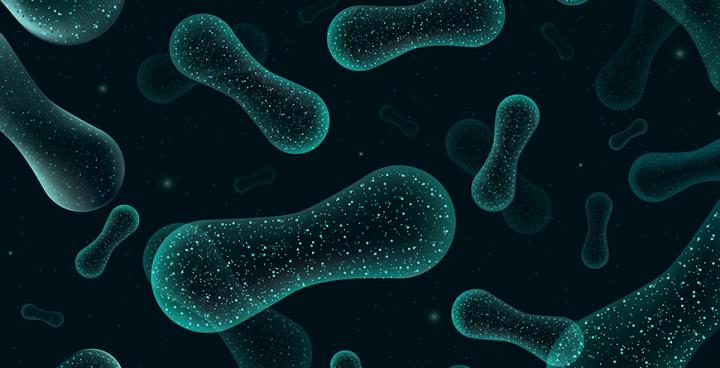
Credit: Public domain
According to the Centers for Disease Research, 1 in 54 children is diagnosed with autism spectrum disorder (ASD) each year, and the number has been rising. The disease causes perplexing, lifelong developmental disabilities, which usually arise during early childhood and affect social skills, communication, personal relationships, and self-control.
In new research appearing in the journal mSphere, Rosa Krajmalnik-Brown, James Adams and their colleagues highlight the crucial importance of bacterial microbes in the human gut for the diagnosis and treatment of ASD.
Autism is considered a “spectrum disorder,” characterized by a range of stereotypic behaviors that can affect people to varying degrees. While genetic correlates have been implicated, the full panoply of underlying causes of ASD remain murky. Despite the prevalence of the disease and its profound societal impact, no effective FDA-approved treatment for the disorder currently exists.
In earlier studies, the researchers observed the effects on ASD symptoms following the use of a revolutionary approach, known as microbial transfer therapy (MTT). The procedure, in which gut microbiota from healthy donors are transplanted into ASD patients over a period of 7-8 weeks, produced marked alterations in the ASD gut, improving both gastrointestinal and behavioral symptoms of the disease. Remarkably, symptom improvement continued for two years after completion of the study.
The new research takes a closer look at plasma and fecal metabolites altered through MTT. According to Krajmalnik Brown, Professor at ASU’s School of Sustainable Engineering and the Built Environment, researcher in the Biodesign Swette Center for Environmental Biotechnology and Director of the newly formed Biodesign Center for Health Through Microbiomes, “looking at metabolites is important because it can help us understand how microorganisms affect gastrointestinal symptoms and behavior. They can also be used as biomarkers.”
Indeed, analysis of 619 plasma metabolites in the new study showed a distinctive metabolic profile in ASD children prior to the MTT procedure. Careful investigation of metabolites in blood and feces, as opposed to simply tabulating microbial species in the gut, is crucial when trying to tease out the complex bacterial interactions, which can form both collaborative and competing networks, depending on the particulars of their environment.
Following the procedure, levels of key metabolites in plasma became more similar to levels in typically-developing children, suggesting that this was a result of adjusting the constellation of bacteria to more closely resemble conditions in the normal healthy gut, including a marked increase in microbial diversity.
The new research highlights significant metabolic changes in plasma samples and more modest alterations in fecal samples. “It was exciting to identify many differences in metabolite levels between children with autism and typically developing children, and to observe that many of the metabolite levels improved after microbiome transplant,” says Adams, a Professor at ASU’s School for Engineering of Matter, Transport and Energy and Director the Autism/Asperger’s Research Program at ASU.
Further research will help advance the understanding of the complex and vital interactions between the gut microbiome and neurological features associated with ASD and help fine-tune MTT therapy or other microbial based therapies, for greater effectiveness in mitigating symptoms of ASD.
###
Media Contact
richard harth
[email protected]
Original Source
https:/
Related Journal Article
http://dx.




